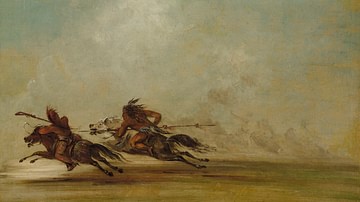Review

| Rating: | |
|---|---|
| Title: | Fixers: Agency, Translation, and the Early Global History of Literature |
| Author: | Zrinka Stahuljak |
| Audience: | Professional |
| Difficulty: | Hard |
| Publisher: | University of Chicago Press |
| Published: | 2024 |
| Pages: | 357 |
"Fixers" is a complicated and dense work that struggles to find its focus. Suffering from a convoluted and often impenetrable language, this book fails to accommodate the average reader. Zrinka Stahuljak speaks primarily to professionals in translation and interpretive studies.
In this book, Zrinka Stahuljak, a medieval historian, professor at UCLA, and interpreter during the war in Yugoslavia, focuses primarily on the theory of translation. Through proposing the term "fixers," a term loosely based on its journalistic application, Stahuljak suggests that in translation and interpretive studies, the "fixer" is an individual who serves as an intermediary between two or more people who speak different languages. She explains that this goes beyond simple linguistic translation. The "fixer" also serves as a cultural and social mouthpiece for the parties involved. However, Stahuljak moves outward from here and seemingly tries to incorporate into her argument what she calls the "fixer paradigm." The role of this paradigm is to remove Eurocentrism, genre, author, nationalism, etc., from early modern literature and, by doing so, create a global history of literature. Making this change provides opportunities for scholars to reexamine disciplinary notions and create an alternative history of literature.
Unfortunately, this information is stated most explicitly in the Conclusion. Had the Conclusion been used as the Introduction, Fixers would be significantly more accessible to a larger audience. This discrepancy in the Introduction and Conclusion is so apparent that one could assume they were written by two different people. Moreover, the book's body chapters seem to struggle to support her thesis. The readability of the chapters is further complicated by the decision to include in-text citations or notes as opposed to end or footnotes. The book’s flow would be significantly helped if, instead of clogging the text with the original Latin or French passages, the author put this information in a footnote.
Beyond stylistic minutiae, the idea of what Stahuljak is proposing is controversial. Stahuljak states that the works of Chaucer, Don Quixote, Dante Alighieri, Marco Polo, and others are not the great works of England, Spain, and Italy but great works by great writers of the world. She states that adopting this ideology will allow interpreters and translators to represent the true intention and meaning of some of the most significant literature known more accurately to man without the interference of national loyalties. On the other hand, these fabulous works of literature are central to the identity of nations such as England, Spain, and Italy. Thus, their authors' struggles, dreams, and aspirations are worked into the very fabric of these works. The books are imbued with a specific identity, for example, making Don Quixote the embodiment of early modern Spain.
To the professional reader, Fixers represents an attempt to give meaning to an abstract construct and give it legitimacy and value. Moreover, Stahuljak’s work allows a member of the fields of translation and interpretive studies another avenue for understanding the documents they analyze. Stahuljak is not afraid to propose something new. She admits that her ideas may offend some individuals. Still, as a person with a background in translation and interpretation, she knows the struggle of representing the authentic ideas of the parties involved by arguing that only through removing the barriers of nation, genre, and even author can these works become representations of human and global literature.
Fixers is complicated work. The book combines elements of literary criticism, history, philosophy, and abstract thought. Yet, the book is hindered by issues of organization, legibility, and accessibility. In the end, Stahuljak never fully connects with the average reader the reason why they should be invested in the concept of the “fixer paradigm.” Instead, Stahuljak speaks to her fellow historian-translators about a problem central to their field. By doing so, she offers a solution to removing ingrained nationalism and Eurocentrism from valued medieval literature to create an alternate history of world literature.
About the Reviewer
Cite This Work
APA Style
Manuel, A. (2024, March 20). Fixers: Agency, Translation, and the Early Global History of Literature. World History Encyclopedia. Retrieved from https://www.worldhistory.org/review/401/fixers-agency-translation-and-the-early-global-his/
Chicago Style
Manuel, Adam. "Fixers: Agency, Translation, and the Early Global History of Literature." World History Encyclopedia. Last modified March 20, 2024. https://www.worldhistory.org/review/401/fixers-agency-translation-and-the-early-global-his/.
MLA Style
Manuel, Adam. "Fixers: Agency, Translation, and the Early Global History of Literature." World History Encyclopedia. World History Encyclopedia, 20 Mar 2024. Web. 27 Apr 2024.



